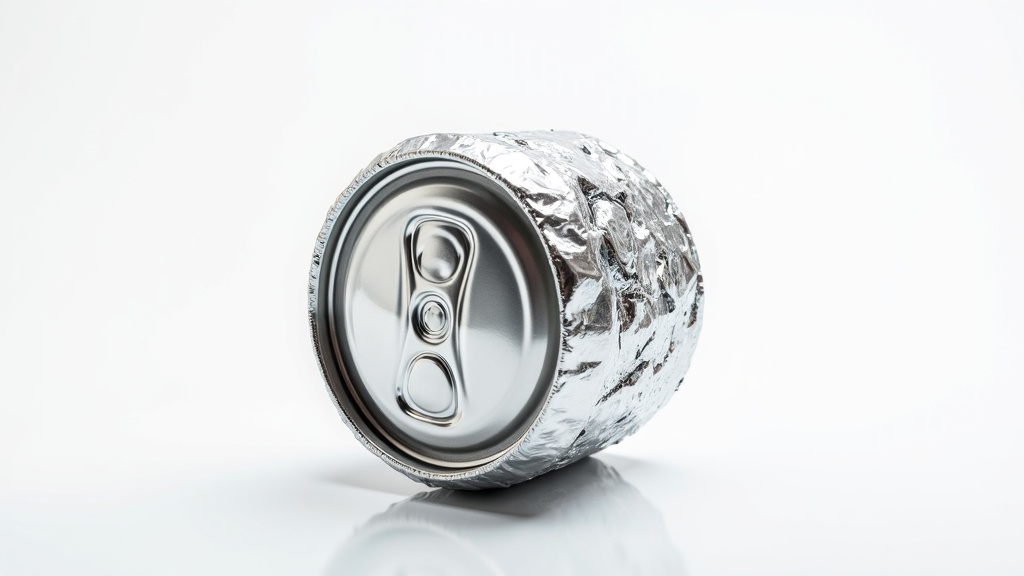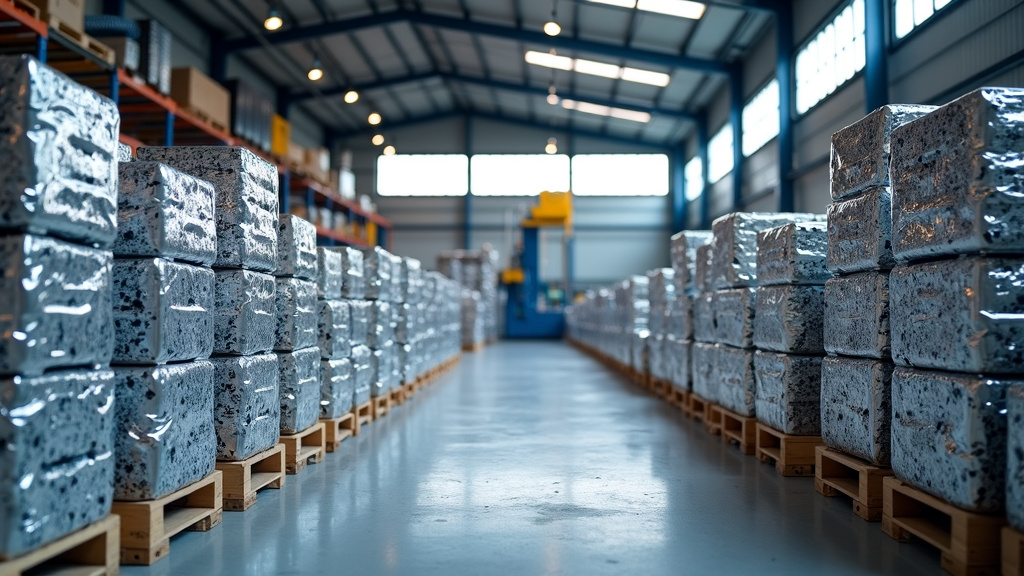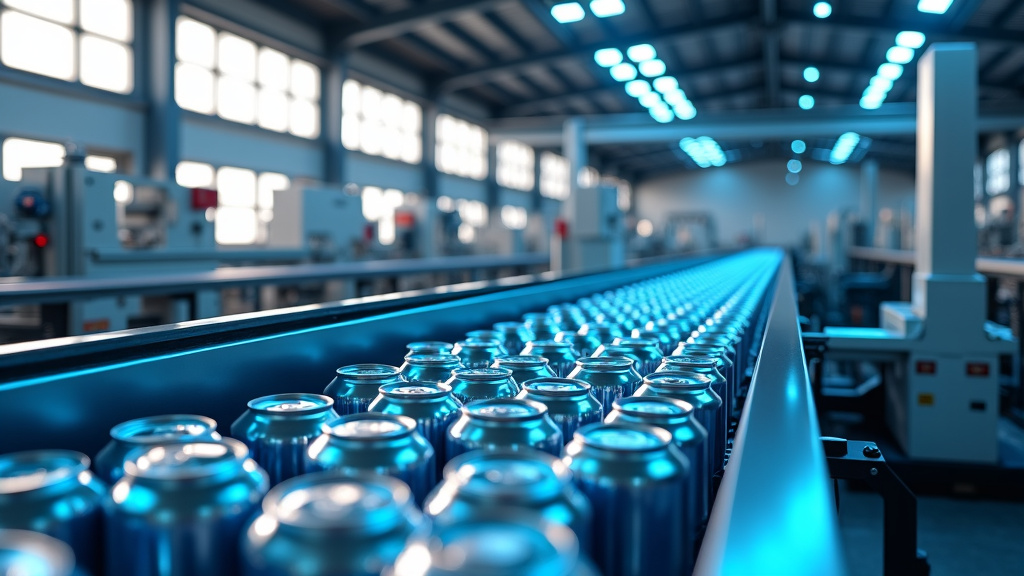5901 Botham Jean Blvd, Dallas, TX 75215
Cans for Cash: Turn Recyclables into Money
April 10, 2025Did you know that recycling just one aluminum can saves enough energy to power a TV for three hours? This fact highlights the significant value of the aluminum can. But the benefits extend beyond energy savings. With the right approach, you can turn your ‘cans for cash’, transforming your recyclables into a steady stream of extra income.
Aluminum recycling isn’t just for environmentalists; it’s a lucrative opportunity waiting to be tapped. According to the International Aluminium Institute, recycling aluminum can lead to cost savings of up to $2 billion annually across the global aluminum industry. That’s a significant economic impact, and you can claim your share of this recycling bounty.
In this article, we’ll explore how you can maximize your earnings from recycling aluminum cans, examine the environmental and economic benefits of this practice.
The Environmental Impact of Recycling Aluminum Cans

Recycling aluminum cans is more than just a feel-good practice—it’s a powerhouse of environmental benefits that significantly reduces our carbon footprint. The process saves an astonishing amount of energy and resources, making it a cornerstone of sustainable waste management.
Consider these statistics: recycling aluminum saves 90% to 95% of the energy needed to produce aluminum from raw bauxite ore. This isn’t a minor improvement; it’s a major step in our fight against climate change. Recycling a single aluminum can saves enough energy to power a television for three hours!
The benefits extend beyond energy savings. Recycling one ton of aluminum cans prevents the emission of 10 tons of CO₂—equivalent to taking two passenger cars off the road for a year. It’s a reminder of the significant impact our everyday actions can have on the environment.
The Ripple Effect of Aluminum Can Recycling
The environmental benefits of recycling aluminum cans go beyond energy savings and reduced emissions. By diverting cans from landfills, we conserve space and prevent potential soil and water contamination. Every can recycled is one less piece of waste in a landfill for centuries.
Recycling aluminum also reduces the need for bauxite mining—the primary source of new aluminum. This preservation of natural resources benefits biodiversity and ecosystem health. Bauxite mining often involves clearing large areas, leading to deforestation and habitat destruction. By recycling, we help protect these vital ecosystems.
The aluminum can recycling process embodies the principles of a circular economy. Unlike many materials that degrade during recycling, aluminum can be recycled indefinitely without losing quality. This closed-loop system reduces the need for raw materials and minimizes waste, creating a sustainable cycle of use and reuse.
Economic Benefits of Aluminum Recycling
The environmental advantages of recycling aluminum cans are paired with economic benefits. The recycling industry creates jobs, stimulates local economies, and promotes resource efficiency. Raising the U.S. aluminum recycling rate to 90% could add over 100,000 jobs and inject billions into the economy.
This economic boost isn’t just theoretical. The aluminum can recycling industry is thriving, contributing significantly to local and national economies. It’s an example of how environmental sustainability and economic growth can work together.
Moreover, the efficiency of the aluminum recycling process translates to cost savings for manufacturers. These savings can be passed on to consumers, making recycled aluminum products more competitive in the market and encouraging their use and recycling.
How to Prepare Your Cans for Recycling

Recycling cans is a straightforward way to contribute to environmental conservation. Proper preparation ensures your cans are recycled efficiently. Here are the essential steps for preparing your cans for recycling, maximizing their value, and minimizing waste.
Rinse and Clean
The first step in preparing cans for recycling is to rinse them thoroughly. This removes any leftover food or liquid that could contaminate the recycling process. According to recycling experts, unrinsed cans can attract pests and compromise entire batches of recyclables.
Follow these simple steps to clean your cans effectively:
- Empty the can completely
- Rinse with water to remove any visible residue
- For stubborn residues, use a small amount of soap if necessary
- Allow the can to air dry before recycling
Remember, while thorough cleaning is important, a quick rinse is usually sufficient to prepare most cans for recycling.
Sort Your Cans
After cleaning, the next crucial step is sorting your cans. While most metal cans are recyclable, different types of metals may require separate processing. Here’s a quick guide to sorting:
Aluminum cans (soft drink and beer cans) can typically be recycled together. Steel cans (most food cans) should be separated from aluminum when possible. If you’re unsure about a can’s material, use a magnet – steel cans are magnetic, while aluminum cans are not.
| Type of Can | Examples | Recycling Tip |
| Aluminum | Soda cans, beer cans | Do not flatten; rinse before recycling |
| Steel | Food cans | Use a magnet to identify; separate from aluminum |
| Aerosol | Deodorant, hairspray | Remove plastic caps; ensure they are empty |
Remove Labels and Lids
While not always necessary, removing paper labels from cans can help streamline the recycling process. For steel cans with removable lids, detach the lid and place it inside the can after rinsing. This prevents the lid from getting lost in the recycling process.
For aerosol cans, remove the plastic cap before recycling. These caps are often made of a different type of plastic and should be recycled separately if your local facility accepts them.
Proper Storage Before Recycling
Once your cans are clean and sorted, it’s important to store them properly until recycling day. Here are some best practices:
- Use a designated bin or bag for can storage
- Keep the storage area dry to prevent rusting
- Don’t crush the cans – many recycling facilities prefer them intact for easier sorting
- If space is an issue, consider flattening cans vertically instead of crushing them
By following these steps, you’re not just recycling – you’re recycling efficiently. Your efforts help ensure that more materials can be successfully repurposed, reducing waste and conserving resources. Remember, every can counts in our collective effort to build a more sustainable future.
Finding the Best Places to Sell Your Cans

Turning your aluminum cans into cash is simpler than you might think. With some research and effort, you can find lucrative opportunities to sell your cans while contributing to environmental sustainability. Let’s explore the options available for selling your aluminum cans and maximizing your profits.
Recycling Centers: Your Local Hub for Can Redemption
Recycling centers are often the preferred choice for many can collectors. These facilities are equipped to handle large volumes of recyclable materials, including aluminum cans. Many recycling centers offer competitive prices, especially for bulk quantities.
To find a recycling center near you, check your local government’s website or use online recycling locator tools. Some centers may offer higher rates for clean, sorted cans, so it’s beneficial to prepare your cans before bringing them in.
Keep in mind that prices can fluctuate based on market conditions. According to Recycling Center Near Me, scrap aluminum can fetch up to $1367 per ton, significantly higher than other recyclable materials like plastic or glass.
Scrap Yards: Where Metal Turns to Money
Scrap yards are another excellent option for selling aluminum cans, especially if you have a large quantity. These facilities typically deal with various metals and may offer competitive prices for aluminum.
When choosing a scrap yard, call ahead to inquire about their current rates for aluminum cans. Prices can vary widely, so it’s worth shopping around. Some scrap yards may offer better rates for regular customers or larger quantities.
Remember that scrap yards often pay by the pound. On average, you can expect to receive between 40 to 50 cents per pound of aluminum cans. This rate can add up quickly if you’re a frequent collector or have access to large quantities of cans.
Reverse Vending Machines: Convenience at Your Fingertips
Reverse vending machines offer a quick and easy way to recycle your cans and get paid on the spot. These automated machines are often found in grocery stores, shopping centers, and other public locations.
To use a reverse vending machine, simply insert your clean aluminum cans one at a time. The machine will count the cans and issue a receipt that you can redeem for cash or store credit. While the per-can payout might be lower than other options, the convenience factor makes this an attractive choice for many people.
Keep in mind that reverse vending machines are more common in states with bottle deposit laws. In these states, you can typically reclaim your deposit of 5 to 15 cents per can, which can add up quickly.
Comparing Prices and Choosing the Best Option
To get the best price for your aluminum cans, it’s essential to compare your options. Here are some tips to help you make an informed decision:
- Check prices regularly, as they can fluctuate based on market conditions.
- Consider the volume of cans you have—larger quantities may fetch better prices at scrap yards.
- Factor in the time and effort required for each option.
- Look for special promotions or bonus rates offered by recycling centers or scrap yards.
- If you live in a bottle bill state, prioritize locations that offer full deposit refunds.
Remember, the best option for you may depend on your specific circumstances, including your location, the quantity of cans you have, and how much time you’re willing to invest in the process. By doing your research and comparing prices, you can ensure you’re getting the most value for your aluminum cans while contributing to a more sustainable future.
| Option | Pros | Cons |
|---|---|---|
| Recycling Centers | Competitive prices, especially for bulk; local availability | Prices fluctuate based on market conditions |
| Scrap Yards | Competitive prices for large quantities; pay by the pound | Prices vary widely; may require negotiation |
| Reverse Vending Machines | Convenient; immediate payout | Lower per-can payout; limited to states with deposit laws |
How Okon Recycling Can Help with Cans for Cash
In the realm of metal recycling, Okon Recycling stands out as a significant player. With a history spanning over a century, this Dallas-based company has become a trusted leader in converting discarded aluminum cans into valuable resources. Their dedication to sustainability is deeply embedded in their long-standing operations.
Okon’s approach to aluminum can recycling extends beyond simple collection. They have developed an efficient process that maximizes productivity while offering competitive prices to both individuals and businesses. This dual focus on environmental stewardship and economic incentives has positioned Okon as a preferred partner for those looking to turn their cans into cash.
Central to Okon’s operations is a state-of-the-art 20-acre facility that merges cutting-edge technology with decades of industry expertise. This modern hub is where discarded cans are transformed into valuable raw materials for future use, showcasing Okon’s commitment to sustainable practices and innovation in recycling.
The Future of Can Recycling: Trends and Innovations

The concept of extended producer responsibility is gaining traction, with manufacturers taking greater accountability for their products’ entire lifecycle. This shift is likely to lead to more innovative packaging designs and improved recycling infrastructure, ultimately making it easier for consumers to recycle their cans.
Significantly, the circular economy model is reshaping how we think about resources and waste. Rather than the traditional ‘take-make-dispose’ approach, the circular economy emphasizes keeping materials in use for as long as possible. This paradigm shift could transform the ‘cans for cash’ market, creating new opportunities for recyclers and consumers alike.
As these trends evolve, it’s crucial for individuals to stay informed and actively participate in sustainable waste management practices. By embracing these innovations and supporting companies at the forefront of recycling technology, we can all contribute to a more sustainable future. Remember, every can recycled is a step towards a cleaner, greener planet.
To learn more about cutting-edge recycling solutions and how you can make a difference, contact Okon Recycling at 214-717-4083. Together, we can drive the future of can recycling and create a more sustainable world.
